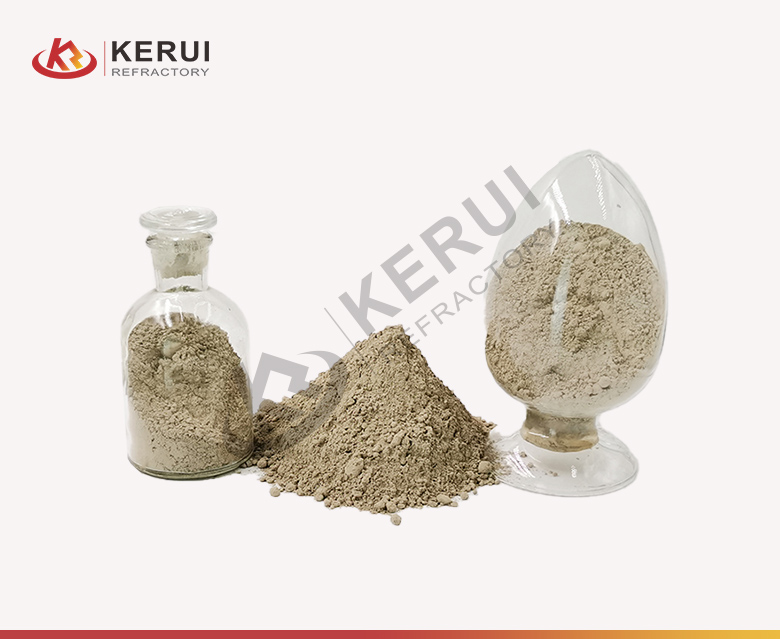In the realm of high-temperature industrial applications, the search for materials capable of withstanding extreme heat is of utmost importance. Enter High-Temperature Refractory Cement, often referred to as Refractory Cement, the go-to solution for industries where heat resistance is paramount. In this article, we shall delve into the nature of High-Temperature Refractory Cement, its key advantages, and its versatile applications.

Unveiling High-Temperature Refractory Cement
Kerui high temperature refractory cement is a specialized cementitious material meticulously engineered to surpass the limitations of conventional cement and endure temperatures far beyond normal thresholds. Formulated with a high-alumina composition or other refractory materials, it proves to be an ideal choice for industries subjecting materials to extreme heat.
Key Advantages of High-Temperature Refractory Cement
Unparalleled Heat Resistance
The foremost advantage of High-Temperature Refractory Cement lies in its exceptional heat resistance. It withstands temperatures ranging from 2000°C to 3000°C (3632°F to 5432°F), rendering it suitable for applications such as furnaces, kilns, and incinerators.
Durability
Refractory Cement stands as a testament to durability, designed not only to bear high temperatures but also to withstand thermal shock and rapid temperature changes. The durability of heat refractory cement translates into an extended service life and reduced maintenance costs.

Superb Adhesion
High-Temperature Refractory Cement displays excellent adhesion properties, ensuring a strong bond with various refractory materials such as bricks, ceramic fibers, and castables. This makes it an ideal choice for repairing or lining high-temperature equipment.
Versatility
Refractory Cement is available in various forms, including wet mixes and dry mixes. This versatility allows for its utilization in a wide range of applications, from patching small cracks to creating custom-shaped linings for intricate structures. Moreover, this product has many other excellent properties: https://krref.com/refractory-cement/price/.
Corrosion Resistance
In addition to its ability to withstand extreme heat, High-Temperature Refractory Cement exhibits resistance to chemical corrosion. This makes it well-suited for applications involving exposure to aggressive chemicals or gases.
Applications of High-Temperature Refractory Cement
High-Temperature Refractory Cement finds indispensable usage in several industries:
- Foundries: It serves as a lining for furnaces and crucibles involved in the processing of molten metals.
- Glass Manufacturing: Refractory Cement lines glass melting furnaces, ensuring their capacity to withstand the high temperatures required for glass production.
- Incinerators: It plays a crucial role in the construction of waste incinerators, where temperatures can reach extreme levels.
- Steel Industry: Refractory Cement is employed in the lining of steel ladles, tundishes, and other high-temperature equipment.
- Boilers: In industrial boilers and power plants, Refractory Cement provides insulation and protection to the boiler's interior from extreme heat.
- Ceramic Kilns: Kilns used in ceramic production rely on Refractory Cement to maintain high temperatures for the firing of ceramic products.
Conclusion
High-Temperature Refractory Cement produced by Kerui Refractory company stands as the ultimate solution for industries grappling with the challenge of extreme heat. Its exceptional heat resistance, durability, and versatility make it an indispensable material for lining and repairing high-temperature equipment. Whether you operate in the metallurgical, glass, or waste management industry, High-Temperature Refractory Cement serves as your steadfast ally in conquering the heat and maintaining efficient and reliable operations. When faced with the trials of extreme heat, place your trust in High-Temperature Refractory Cement to ensure the smooth operation of your industrial processes.
